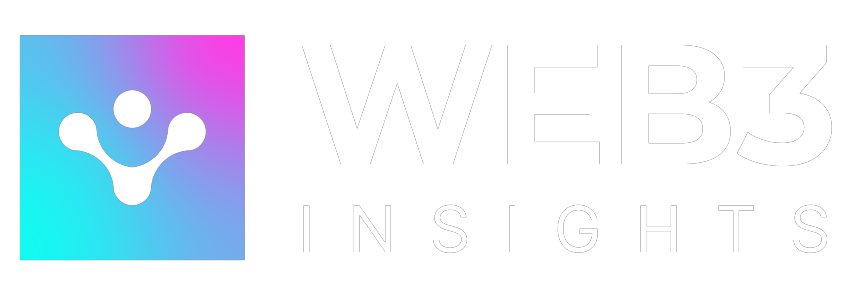
Real estate is one of the best ways to invest money, but it’s often slow and full of paperwork. Buying a house or land usually takes a lot of time and involves many people. But with new technology like blockchain, things are changing. Now, real estate can be broken into smaller parts called tokens.
These tokens let people own a piece of property without buying the whole thing. It’s like owning a share in a building!
In this article, I’ll explain how tokenized real estate works and why it’s becoming popular in both real estate and crypto.
What Does Real Estate Tokenization Entail?

Tokenized real estate means turning property ownership into digital tokens on a blockchain. Each token is like owning a small piece of a property, much like owning shares of a company. These tokens can be easily bought, sold, or traded online in a secure way.
Instead of needing a lot of money to buy a whole property, investors can purchase smaller parts of a property. This makes it easier for more people to invest in real estate. Tokenization can be done with any type of property, like houses, buildings, or land, and it helps make the property more flexible to trade.
Smart contracts, which are automatic computer programs, handle things like transferring ownership when a property is sold. These transfers are recorded on the blockchain, ensuring security. NFTs, which are special digital tokens, are often used in these deals to make sure everything is safe and traceable.
How Does Tokenization for Real Estate Operate?

Tokenizing real estate works like crowdfunding, where a smart contract breaks a property into smaller shares. This automated code, stored on a blockchain, enables someone who buys or holds a token to own a fraction of the property and claim any associated profits or losses.
For example, consider a person who owns a home worth $100,000 but needs cash quickly. They might not want to sell the entire house, and potential investors might not have enough money to buy it outright. In this case, tokenization provides a solution. The owner can divide the property into digital tokens, each valued at $1,000, allowing multiple investors to gradually buy into the property. This process occurs on a decentralized network, ensuring full transparency.
You can tokenize any kind of property, whether residential, commercial, or unique. For example, you can divide expensive commercial buildings, like malls, into smaller shares to make them more affordable for investors.Tokenizing units in apartment buildings can also speed up the buying and selling process. Through tokenization, property owners can raise funds while still retaining partial ownership of their valuable assets.
“Trophy assets” refer to rare and highly desirable properties that attract a lot of investors. These can include well-known buildings but also unique properties, such as a picturesque vineyard or a riverside decorated with valuable natural features. You can tokenize almost any asset, whether it’s a company share, a loan portion, or fractional ownership of property rights.
How Blockchain Enables Tokenized Real Estate

Blockchain is critical in making tokenized real estate possible by providing a decentralized and secure platform for transactions. Here’s how:
- Transparency: Blockchain’s decentralized ledger ensures that all real estate transactions are recorded publicly and can be verified by anyone. This level of transparency helps reduce fraud and ensures that the history of property ownership is clear and immutable. Each token representing a piece of real estate has its ownership details and transaction history securely recorded on the blockchain.
- Security: Blockchain’s cryptographic nature ensures that tokens representing real estate cannot be tampered with. Smart contracts with the terms of the agreement directly written into code automate and secure processes like transfer of ownership, rental agreements, and payments, ensuring they happen without intermediaries.
- Efficiency and Cost Reduction: Traditional real estate transactions often involve multiple intermediaries such as brokers, banks, and legal representatives, which adds time and cost. With blockchain, transactions can be done directly between buyers and sellers via smart contracts, reducing the time and fees associated with real estate deals. This process also reduces the risk of human error and increases transaction speed.
- Fractional Ownership: Blockchain allows real estate assets to be tokenized, breaking them into smaller units that investors can purchase. This fractional ownership model is difficult to achieve through traditional means but becomes seamless on the blockchain, allowing more investors to participate in real estate markets.
- Global Access: By tokenizing real estate on a blockchain, property ownership is not limited to local buyers. Investors from anywhere in the world can buy tokens that represent ownership stakes in real estate, making the market more accessible and globalized.
Blockchain’s combination of transparency, security, efficiency, and accessibility makes it the ideal foundation for tokenized real estate, enabling a new wave of innovation in property ownership and investment.
Benefits of Tokenized Real Estate

Tokenizing real estate brings many exciting benefits that can change the way people buy and sell property. Here are some of the main advantages:
1. Easier and Clearer Transactions
Tokenization uses blockchain technology to make buying and selling property easier and clearer. With blockchain, all transactions are recorded in a way you cannot be change. This means there are fewer chances for mistakes or unfair deals.
Smart contracts, which are like digital agreements, help to automate the process. This makes transactions quicker and removes the need for a lot of paperwork, allowing people to buy or sell properties at any time, even outside of regular business hours.
2. More Liquidity
In the traditional real estate market, it can be hard to sell a property quickly. Tokenization helps solve this problem by breaking properties into smaller pieces called tokens. This means that instead of selling a whole property, people can sell just a part of it. This makes it easier for owners to sell their tokens and helps more people feel comfortable investing in real estate.
3. Access for Small Investors
Real estate has often been a place for rich investors, but tokenization changes that. Dividing properties into smaller, affordable tokens allows more people to invest in real estate This opens up opportunities for individuals who may not have a lot of money but want to invest in property. Now, everyone can have a chance to own a part of real estate.
4. A Fairer Market
Tokenization creates a fairer market where everyone has a voice. Traditional financial systems can be complex and often favour a few people. However, with tokenization, everyone gets to participate equally. This means that all investors, big or small, have the same opportunity to succeed in the real estate market.
5. Less Risk
In traditional real estate transactions, numerous people take part in various steps, often leading to confusion and risks. Tokenization simplifies this process by reducing the number of people involved. Smart contracts help keep everything clear and secure. This means there is a lower chance of problems arising from other parties, making transactions safer for everyone involved.
Conclusion
Tokenized real estate is changing the game when it comes to property ownership. By using blockchain, it makes investing in real estate more accessible and transparent, allowing more people to own a piece of valuable properties. This approach opens up new opportunities, letting everyday investors join a market that was once out of reach.
Of course, there are still challenges to tackle, like navigating regulations and ensuring widespread adoption. But as we overcome these hurdles, the potential for tokenized real estate is exciting. It could lead to a more inclusive and efficient real estate market where everyone has a chance to invest in the places they love. Embracing this innovation might just reshape how we think about property ownership for the better!








